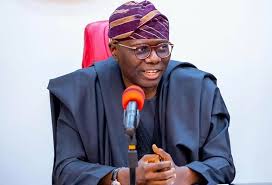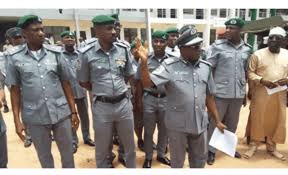Ahmad Muhammad Danyaro
Kano has always been an important commercial hub centuries before it became a state capital in Nigeria in 1967. Kano was already a major centre of commerce for people in places as far flung as Sudan and Libya. And since the creation of Nigeria, Kano has remained the most important commercial city in the North, and second to Lagos in the entire country. Kano state was created on May 27, 1967 with Kano as capital. The landmass of the state is 20,131square kilometers (7,773 square miles). According to the 2006 national census, it was the most populated state in the country with 9,383,682 people.
Besides numerous markets, Kano is home to various agricultural produce which provides huge raw materials for agro-allied industries. They include maize, guinea corn, rice, cotton and of course, groundnut, which serves as raw materials to oil mills, flour and textile industries. Kano also boasts of other agro-based raw materials like gum Arabic, livestock, hide and skin, cowpeas, citrus fruits, etc.
Kano also has good road network and Mallam Aminu Kano International Airport ensures that it retains its status as the hub of economic and commercial activities in that part of Nigeria. There is also a rail line connecting Kano to other parts of Nigeria. There are over 150 commercial banks in the city, and it’s the leading financial centre in Northern Nigeria as well as the home of manufacturing industries, notably textile mills.
Wikepedia describes Kano thus: “Kano State is the second largest industrial centre in Nigeria and the largest in northern Nigeria. There are at present over 50,000 privately owned micro, small and medium scale industries in the state, producing various items such as textile materials, tanned leather, footwear, cosmetics, plastics, enamel ware, pharmaceuticals, ceramics, furniture and bicycles. Others are agricultural implements, soft drinks, food and beverages, dairy products, vegetable oil, and animals feeds.
The just concluded 2nd Kano Economic and Investment Summit held in Kano Government House and attended by captains of industry would long remain a key-part of the Kano State history being part of activities marking 50th anniversary of the state.
Chairman, organizing committee and former Minister of Finance and National Planning, Dr Shamsudden Usman, said, “This summit with the theme; “Transforming the Economy of Kano State: Turning Challenges into Opportunities,” is aimed at unveiling sound blueprint for the state.
The summit would provide platform for Kano business, foreign investors and business organizations on the abundant opportunities in the state and commensurate commitment of the state government on returning the state to glorious days of industrial and commercial activities.
Usman, former deputy governor of Central Bank of Nigeria, said all the presumed hitches affecting business activities in the state are addressed. He said Kano State had a lot of investment opportunities that needed to be fully explored by investors as the state is much safe and conducive for both foreign direct investments (FDIs) and Domestic Direct Investments (DDIs).
Acting President Yemi Osinbajo, represented by Minister of Interior, Gen. Abdulrahman Dambazau (rtd), said the forum is timely and would complement federal government’s agenda of revitalizing the nation’s economy through ease of doing business, diversification, fighting youth unemployment and addressing small &medium enterprises high mortality rate. Prof Osinbajo urged participants to make recommendations that would galvanise the economy of the state and nation in general.
Minister of Budget and Economic Planning, Mr Udoma Udo Udoma, described Kano as a catalyst of for accelerating Nigeria’s economic growth. World Bank indices, he said, took Kano into cognizance in ascertaining whether or not Nigeria was in good shape economically. “When Kano is sick economically, it has domino effect on the nation’s economy”.
He assured that with bold steps taken by the Buhari administration to address the rot and restore confidence in foreign multi-national companies to invest in Nigeria, the federal government has demonstrated its seriousness to bail the country out of the appalling economic mess. He disclosed to the august gathering that government has made provisions in the 2017 budget for reviving the Export Expansion Grant (EEG) programme with the view to guaranteeing security for both indigenous and foreign investors.
The 2nd Kano investment and economic summit came to a climax with 10 local and foreign investors signing memoranda of understanding (MoUs) with Kano state government in various sectors of the pyramid state. They include Brains and Hammers, Milestone International; Arewa Solar PV Synergy; Black Rhino and Dangote; Broad Base Nigeria Ltd; Eighteen Engineering Company (EEC), Multi Vision Nigeria Ltd; Shara Dukiya Nigeria Ltd; Dangote Rice and Qingduo St Marry Solar Enegy. The MoUs are for the construction of N146 billion Kanaw Economic City, N630 million tricycle assembling plant, $100 million refuse cycling plant, and $120 million 100 mgwts solar energy plant.
The summit failed to address ease of doing business for small and medium enterprises, access to finance, women challenges in contemporary business environment, entrepreneurial competencies, financial literacy, among other fundamental issues. It is left to be seen if important economic and administrative challenges would be addressed in subsequent edition as Governor Umar Ganduje makes the organizing committee a permanent one to make the event an annual ritual.
Danyaro is Principal Partner, Bizklan Business Solution. Email: [email protected]



